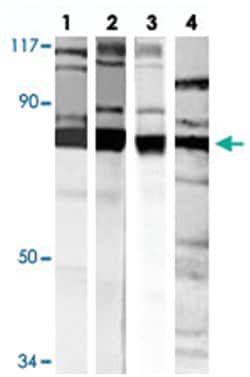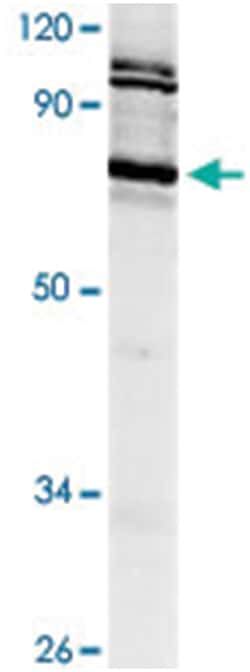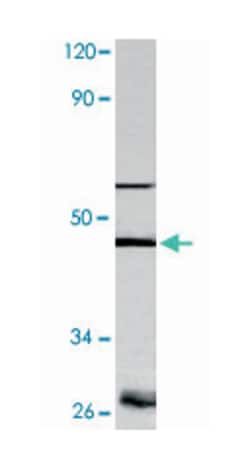PRKCA (phospho T638), Rabbit anti-Human, Mouse, Polyclonal Antibody, Abnova™
Manufacturer: Abnova Corporation
Select a Size
| Pack Size | SKU | Availability | Price |
|---|---|---|---|
| Each of 1 | 89-126-402-Each-of-1 | In Stock | ₹ 87,220.00 |
89-126-402 - Each of 1
In Stock
Quantity
1
Base Price: ₹ 87,220.00
GST (18%): ₹ 15,699.60
Total Price: ₹ 1,02,919.60
Antigen
PRKCA
Classification
Polyclonal
Description
Rabbit polyclonal antibody raised against synthetic phosphopeptide of PRKCA.
Formulation
In PBS, pH 7.2 (0.09% sodium azide)
Gene Alias
AAG6/MGC129900/MGC129901/PKC-alpha/PKCA/PRKACA
Host Species
Rabbit
Purification Method
Antigen affinity purification
Regulatory Status
RUO
Gene ID (Entrez)
5578
Target Species
Human, Mouse
Form
Liquid
Applications
Western Blot
Conjugate
Unconjugated
Dilution
Western Blot (1:500-1:1000) The optimal working dilution should be determined by the end user.
Gene
PRKCA
Gene Symbols
PRKCA
Immunogen
Synthetic phosphopeptide corresponding to residues surrounding T638 of PRKCA.
Quantity
100 μL
Primary or Secondary
Primary
Test Specificity
PRKCA (phospho T638) polyclonal antibody detects endogenous levels of PRKCA protein.
Content And Storage
Store at 4°C. For long term storage store at -20°C.Aliquot to avoid repeated freezing and thawing.
Description
- Protein kinase C (PKC) is a family of serine- and threonine-specific protein kinases that can be activated by calcium and the second messenger diacylglycerol
- PKC family members phosphorylate a wide variety of protein targets and are known to be involved in diverse cellular signaling pathways
- PKC family members also serve as major receptors for phorbol esters, a class of tumor promoters
- Each member of the PKC family has a specific expression profile and is believed to play a distinct role in cells
- The protein encoded by this gene is one of the PKC family members
- This kinase has been reported to play roles in many different cellular processes, such as cell adhesion, cell transformation, cell cycle checkpoint, and cell volume control
- Knockout studies in mice suggest that this kinase may be a fundamental regulator of cardiac contractility and Ca(2+) handling in myocytes
- [provided by RefSeq]



